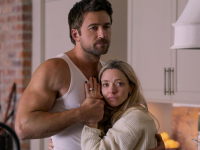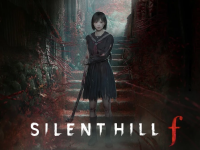
It’s 1947 and Dalton Trumbo is America’s most successful screenwriter. Times are a-changing, however, and before long he is investigated by the House Un-American Activities Committee regarding links with the Communist Party. As a result he’s put on the “blacklist”. This movie charts the real events of Trumbo’s life as he battles against this injustice and tries to continue working…
The eponymous Trumbo is quite brilliantly portrayed by Bryan Cranston. The sheer infectious energy and humour of this man will be my overriding memory of the film. Cranston has been nominated for an Oscar for this performance, the only nomination that the Academy has awarded this film.

The effervescent Helen Mirren
and the enigmatic Bryan Cranston.
The film is directed by Jay Roach, whose previous work is mainly comedy. It’s no surprise then that this film is funny. Trumbo is a very witty man and gets to deliver some cracking one-liners. Humour is never very far away; however bad things get for Trumbo, his family and beleaguered band of fellow blacklisted screenwriters. The film is addressing one of the darkest chapters in American political history when the First Amendment to the Constitution was largely ignored for the best part of thirty years. However, the movie refuses to take itself too seriously and pointedly does not apportion blame. Indeed Trumbo himself states later in the film that there are no villains and that there should be no recriminations for the events of that dark time. He adds that there were “victims”, many of them less fortunate than himself.
Despite how unfairly he is treated throughout the 1950s Trumbo fights with style, humour and compassion. It is these three qualities that can also be applied to the movie itself.
This film has the swagger, style and bravado of the popular movies of that time. The movie industry characters in this film (Trumbo included) are larger than life and deliver their lines like bullets from a revolver. The lawyers and puffed-up politicians gesticulate and bark at the camera. The hair, makeup, costume, props and sets in this film exude post-war America. The film itself feels like it is shot in a rich period Technicolor. You can taste the bourbon and smell the cigars and pomade. Again, just like the popular movies of the 50s, this film has a punchy script and a story that moves at a brisk pace. All of this contributes to the sense that we are watching a movie within a movie.
Inevitably some of Hollywood’s legends are brought to life in this film. Michael Stuhlbarg gives an artful portrayal of Edward G. Robinson and gets to show the quiet, measured man off-screen as well as the brooding menace of the onscreen star. Dean O’Gorman as the brash young Kirk Douglas, touting his new movie Spartacus, lights up the film and commands every scene he is in. It’s not all stunning performances however. David James Elliott had the unenviable task of playing John Wayne. This is an uncomfortable attempt and is really just a vocal impersonation.
Other notables include Diane Lane as Trumbo’s wife Cleo. This is an understated and completely believable portrayal of this graceful woman who is just trying to hold everything together. Lane was unlucky not to get an Oscar nomination for this role. John Goodman is hilarious as movie producer Frank King, who is as happy doing business with a baseball bat as with a pen. Stephen Root plays King’s brother Hymie, a man of few words but every one a gem. Helen Mirren portrays former actress and now highly influential gossip columnist Hedda Hooper. Despite not finding a consistent accent to use for this role, Mirren is still good value.
In the end this film is really about a family fighting to survive, faced with unjust and almost unbearable pressures. Given the serious nature of the main plot, the film has a curiously light-hearted tone in Roach’s hands and this has derailed some reviews. However, I found this very accomplished film highly entertaining.
Author – Simon, Norwich store






